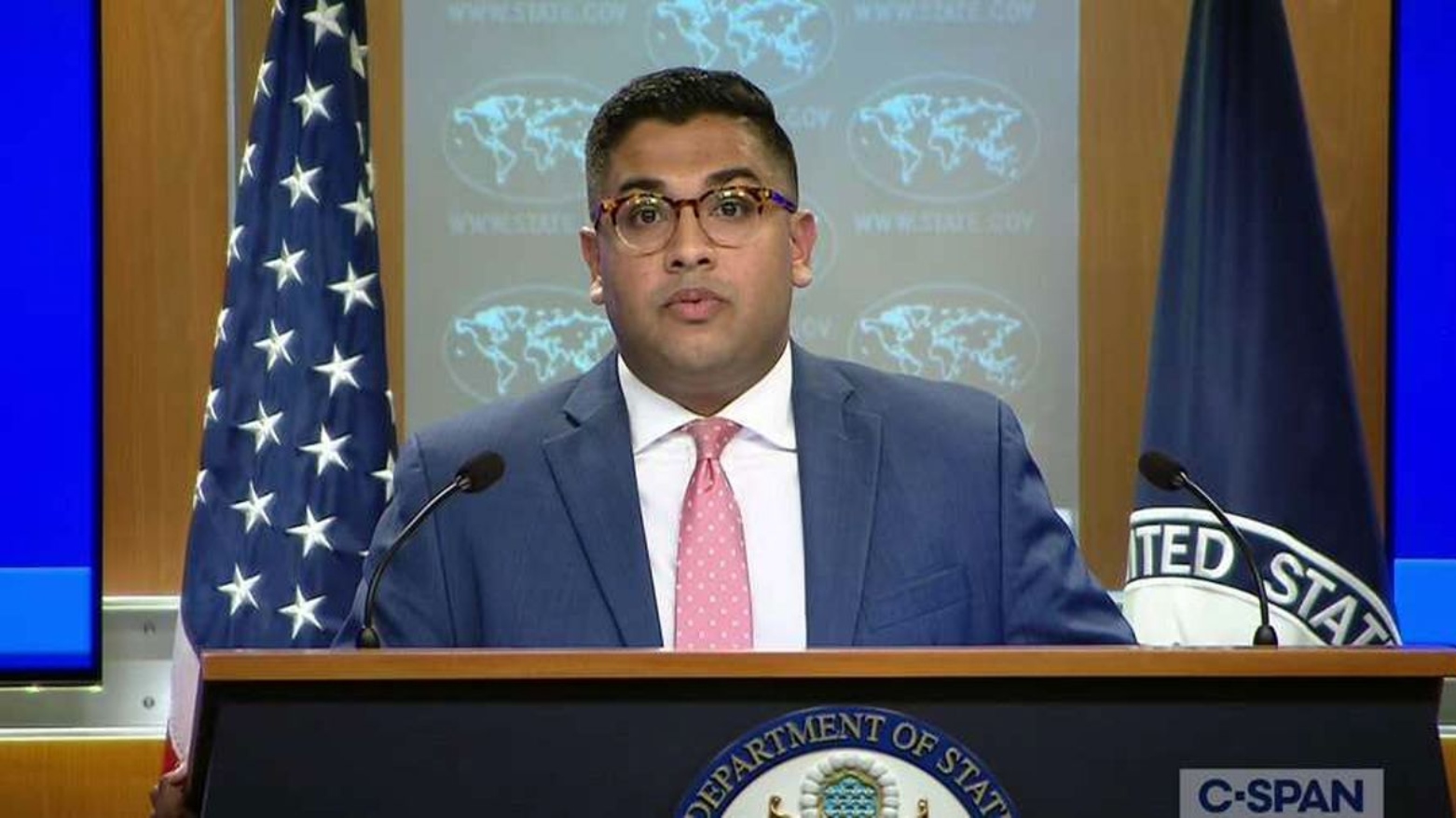US Calls for “Activation of Article 140” to Resolve Kirkuk Dispute
PM Barzani also earlier stressed resolving disputes in Kirkuk in accord with Article 140.

WASHINGTON DC, United States (Kurdistan 24) – Speaking of the unrest in Kirkuk, in which four Kurds have been killed and 14 others have been wounded, Deputy State Department Spokesperson, Vedant Patel, on Tuesday, stressed the importance of Article 140 of Iraq’s constitution in settling the conflict.
Indeed, the Prime Minister of the Kurdistan Regional Government (KRG), Masrour Barzani, recently called for doing just that. Visiting Peshmerga forces in the town of Alton Kupri in Kirkuk Governorate, in late June, Barzani stressed the importance of resolving disputes between Kurds and Arabs in accord with Article 140.
Read More: PM Barzani calls to resolve disputed territories issue within Article 140
In response to a question about the unrest in Kirkuk, Patel replied in similar terms, saying, “The U.S. calls on all parties to resolve any disputes through dialogue and through the activation of Article 140 of the Iraqi constitution.”
Patel’s statement marks the first time that the Biden administration has called for the implementation of Article 140. Indeed, it is the first time in many years that any U.S. administration has done so.
The Iraqi constitution is a product of Operation Iraqi Freedom(OIF), the 2003 U.S.-led war that overthrew Saddam Hussein and his regime.
The 2005 constitution provides for a federal system in Iraq and includes numerous protections for minorities. However, much of it has not been implemented.
Indeed, as Prof. Brendan O’Leary explained to a U.S. audience some years ago, the Iraqi constitution was intended to establish a decentralized federal state, but “critical provisions” were “never applied” or “have been abused.”
Thus, Kurds and Sunni Arabs in Iraq now face a sectarian, Shi’ite regime. The prime minister, Mohammed Shia’ al-Sudani, who assumed office last October, ending a year-long deadlock, appears not to share such sentiments, but as described below, he also appears not to exercise full control over his government.
The Position of the Biden Administration
“So we’re closely monitoring the tensions in Kirkuk,” Patel said in Tuesday’s press briefing. “We condemn the violence that took place and express our condolences to the families of those killed.”
“The U.S. calls on all parties,” he continued, “to resolve any disputes through dialogue and through the activation of Article 140 of the Iraqi constitution.”
The Long-term Dispute in Kirkuk: its Origins
The origins of the dispute go back decades, when Saddam’s Baathist regime pursued the “Arabization” of Kirkuk: driving the Kurds out and moving Arabs in.
To some extent, however, Saddam’s policy of ethnic cleansing in the oil-rich region has been reversed in the years since his overthrow.
Kirkuk lies within the area known as “the disputed territories.” Those areas were subject to the Arabization policy, and they are claimed by both Erbil and Baghdad. According to Article 140, their fate was supposed to be decided in a referendum. However, such a vote was never held.
Because of the collapse of the Iraqi army in 2014, when ISIS sprung out of Syria to attack and occupy much of Iraq, the Peshmerga, as they subsequently drove the terrorist group out, gained control of the disputed territories.
Three years later, after ISIS was declared defeated as an entity controlling territory, the long-time Kurdish leader, President Masoud Barzani, led the Kurdistan Region in a vote on its future: the independence referendum.
It was not a declaration of independence, nor a call to arms. It was only a vote to determine the wishes of the people, in accord with standard democratic practice.
After some delay and confusion, the U.S. announced its opposition to the referendum—and then watched as Qasim Soleimani, head of Iran’s Islamic Revolutionary Guard Corps, working in concert with Iraq’s Prime Minister, Haider al-Abadi, organized an attack on the disputed territories. The Peshmerga withdrew, rather than fight.
The U.S. could have stopped the attack, but did nothing. When the White House finally had a chance to review events, it was unhappy. It certainly had not intended to facilitate Iran’s maneuver and felt that it had not been properly informed about Tehran’s central role by people who should have explained it—i.e. those U.S. officials handling the issue.
In the course of those events, prominent Kurdish individuals and Kurdish institutions left Kirkuk. The late Najmaldin Karim, who was originally from Kirkuk, had been the Kurdish governor of the province.
Karim left Kirkuk and returned to Washington, where he had been a prominent figure in Kurdish politics before OIF. In addition, the Kurdistan Democratic Party (KDP) abandoned its headquarters there.
But provincial elections are now scheduled for December 18, and the KDP asked Sudani to return its headquarters building, and he agreed.
Read More: KDP to recover its offices, headquarters in Kirkuk
But the KDP’s headquarters are now occupied by Shiite militias, and they do not want to leave. They held protests and blocked the Erbil-Kirkuk road for several days. Their defiant response made clear, once again, the limits of Sudani’s authority.
Read More: Shiite militias protest KDP return to Kirkuk for second day
As Kurds launched counter-protests, some elements among the Shiite militias, known as the Popular Mobilization Forces (PMF), fired on them, killing four people and wounding 14 others, over several days of protests.
It is that situation to which Patel was responding, when he expressed his sympathy with the families of those killed and called for the activation of Article 140,
It remains to be seen how the situation in Kirkuk will develop, although, almost certainly, Kurds will welcome the U.S. call for the implementation of Article 140.